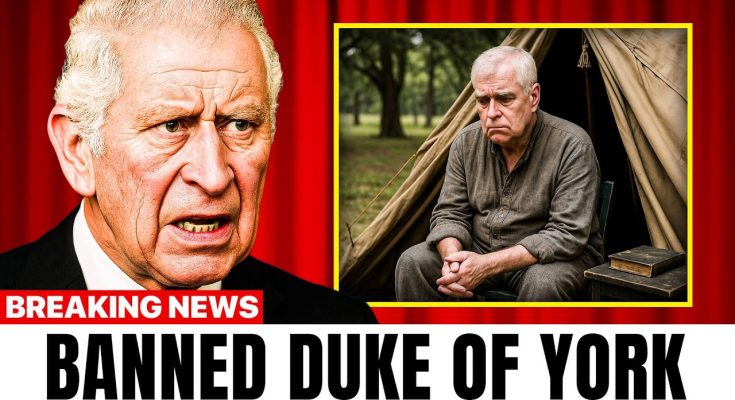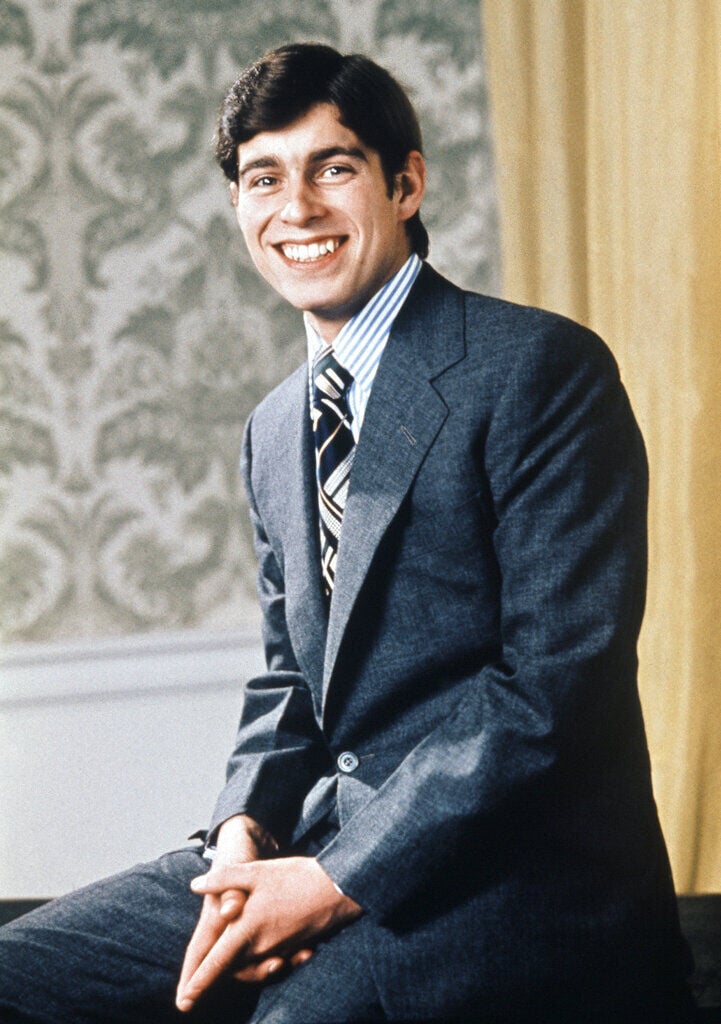The Final Fall of Prince Andrew: When Bloodline Collided with Duty

It began as a whisper and ended as an earthquake within the House of Windsor. For decades, Prince Andrew — once hailed as the “spare of stability” to his elder brother, now King Charles III — hovered uneasily at the edge of scandal. But this time, the palace could no longer contain the noise.
On October 17, after days of internal deliberation and mounting public fury, King Charles III stripped Prince Andrew of all remaining royal titles, including the storied Duke of York
. The decision — both shocking and inevitable — marks one of the most consequential ruptures in the modern history of the British monarchy.
💥 A Decision Years in the Making
Sources close to Buckingham Palace described the atmosphere as “frozen in disbelief.” For years, Andrew’s controversies were treated as a private embarrassment. But the latest revelation — a series of
emails showing continued contact with Jeffrey Epstein long after Andrew publicly claimed to have cut ties — left no room for hesitation.
The discovery, unearthed by investigative journalists and confirmed by palace aides, shattered what little trust remained.
“The straw that broke the camel’s back,” said Craig Prescott, a constitutional expert at Royal Holloway University. “It wasn’t just poor judgment. It was deception — and deception at the highest level.”
🕯️ The King’s Breaking Point
For King Charles, this was not simply an act of discipline, but of survival. Behind closed doors, insiders say the monarch wrestled with the decision for days, torn between his role as sovereign and his role as brother.
“His mother shielded Andrew for years,” one senior courtier confided, referring to the late Queen Elizabeth II. “But Charles has no such luxury. His reign depends on credibility.”
The monarch’s inner circle, aware of his ongoing battle with cancer, described the move as one of “duty over sentiment.” With public opinion collapsing and the monarchy’s moral standing under threat, Charles acted swiftly — a calculated, even ruthless decision to protect the crown from further decay.
📜 The Ultimatum
The final confrontation, according to insiders, was private and painful. Andrew was summoned to Buckingham Palace and asked one question:
“Is there anything else that could come out?”
His response, reportedly hesitant, sealed his fate.
He could offer no guarantees.
Within 48 hours, the palace drafted a statement — not from the King, but from Andrew himself. Released on Friday morning, it announced that he would “no longer use his royal titles” and would “fully support His Majesty’s commitment to uphold the dignity of the monarchy.”
Behind the polished language, however, lay the truth: this was no voluntary gesture. It was an ultimatum, quietly but firmly delivered by the King.
⚖️ The Weight of History
To many observers, the move represents a historic shift in how the monarchy manages its own crises. Under Elizabeth II, the instinct was always to protect — to weather scandals privately, to preserve unity. Charles, by contrast, has ushered in a new age of accountability, even when it cuts deep.
“This was the clean break,” said Dr. Sally Bedell Smith, royal historian. “For the first time, the crown’s survival was openly placed above bloodline.”
It was also a moment of reckoning for the institution itself. The monarchy, already under scrutiny for its privilege and secrecy, was forced to demonstrate that no one — not even a prince — stands above the standard of integrity.
📩 The Ghosts That Forced the King’s Hand
The trigger came from more than scandal — it came from timing. Just days after the leaked emails, news broke that Virginia Giuffre’s posthumous memoir
was set for publication. Giuffre, who died earlier this year, had accused Andrew of sexual assault when she was a trafficked teenager under Epstein’s control.
Her forthcoming book, already excerpted in major papers, threatened to reignite global outrage.
Palace sources say Charles’s team acted swiftly, understanding the need to “own the narrative” before the memoir’s release. By stripping Andrew of his titles, the King ensured that the institution would not be caught reacting — it would lead the response.
“This was preemptive,” said one royal aide. “A surgical strike to stop the hemorrhaging before it began.”
🏰 A Prince in Exile
Now, stripped of his honors and shunned from public life,
Prince Andrew lives as a royal in name only. His residence at Royal Lodge remains, protected by a long-term lease, but his role — ceremonial or otherwise — has vanished.
He no longer represents the Crown, receives no official funding, and has become a ghost within the walls that once defined his existence.
Even his ex-wife, Sarah Ferguson, who still shares the home, has seen her philanthropic work overshadowed by his disgrace. Their daughters,
Princess Beatrice and Princess Eugenie, remain devoted but visibly strained — caught between filial loyalty and public shame.
For the Duke who once strutted proudly beside the world’s elite, the descent has been steep, humiliating, and final.
⚔️ The King’s Calculated Mercy
To the public, this may appear as justice. But inside the palace, some view it differently — not as punishment, but as performance.
Royal watchers argue that Charles’s move, while decisive, is also a masterstroke of optics — a way to signal reform without truly confronting the deeper questions of privilege and accountability.
The monarchy, they say, survives not by changing its foundations, but by sacrificing symbols. Andrew’s exile, in this view, was less revolution than ritual — an offering to preserve public faith.
Still, to others, it represents something profound: a monarch willing to do what even his mother would not.
🌙 The Cost of Survival
As King Charles prepares for his state visit to the Vatican — a meeting with deep spiritual significance — he does so with the shadow of his brother’s disgrace still hanging over him.
This act of royal discipline may have preserved the monarchy’s image, but it came at a price: a family fractured, perhaps beyond repair.
Andrew’s name will fade from official programs, from honors lists, from ceremonial roll calls. But the echoes of this decision — the whispers of blood against duty — will linger.
For centuries, the monarchy has endured through ceremony, through silence, through belief.
Now, it endures through something far colder: control.
And as one brother falls into exile, another fights to keep the crown standing — not as a symbol of privilege, but as a fortress against the rising storm.
“In the end,” said one palace insider, “the King didn’t just strip his brother of titles. He stripped the illusion that blood ever came before the crown.”






